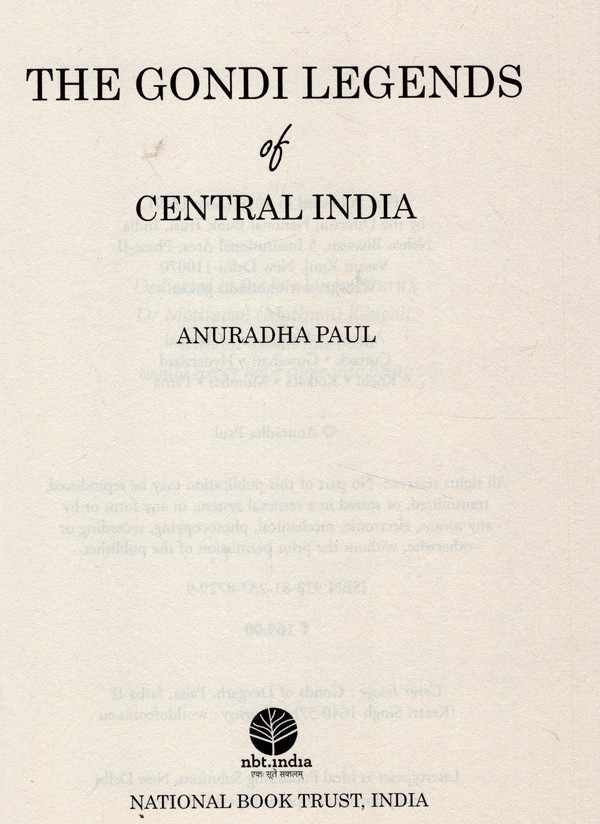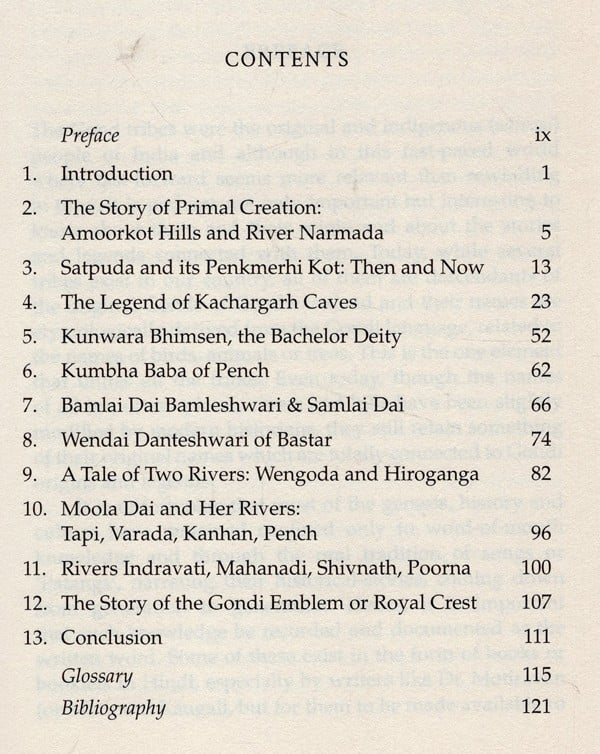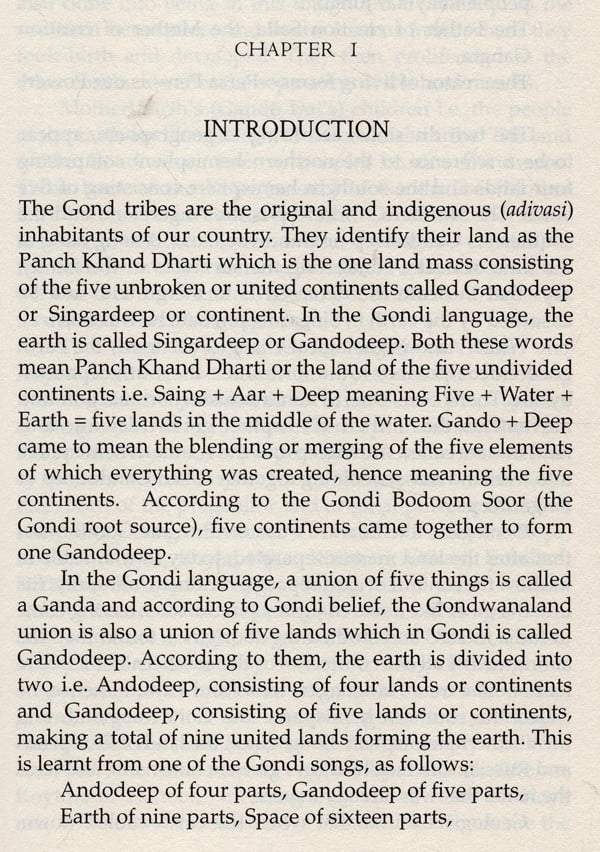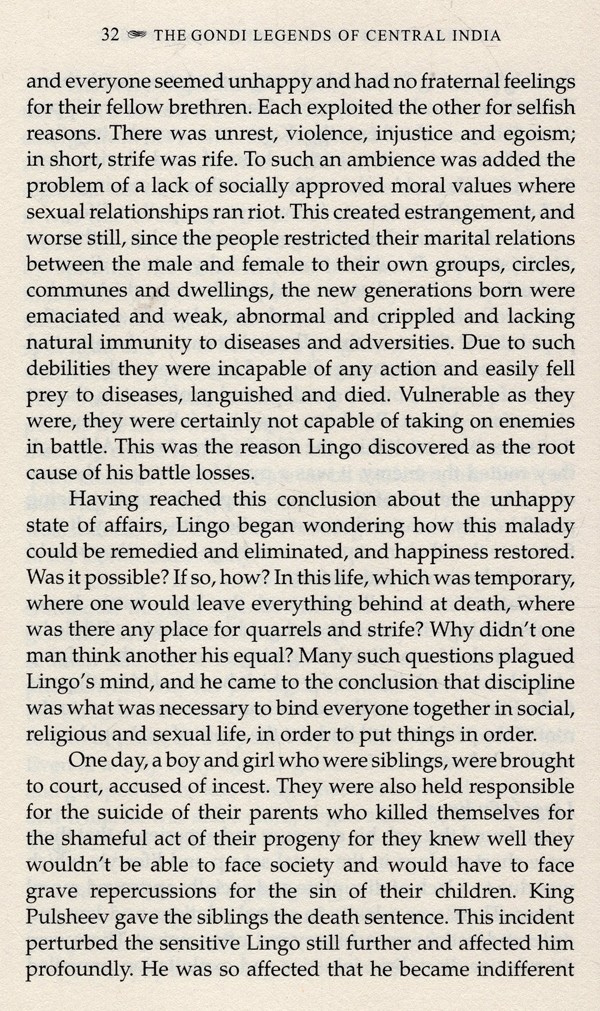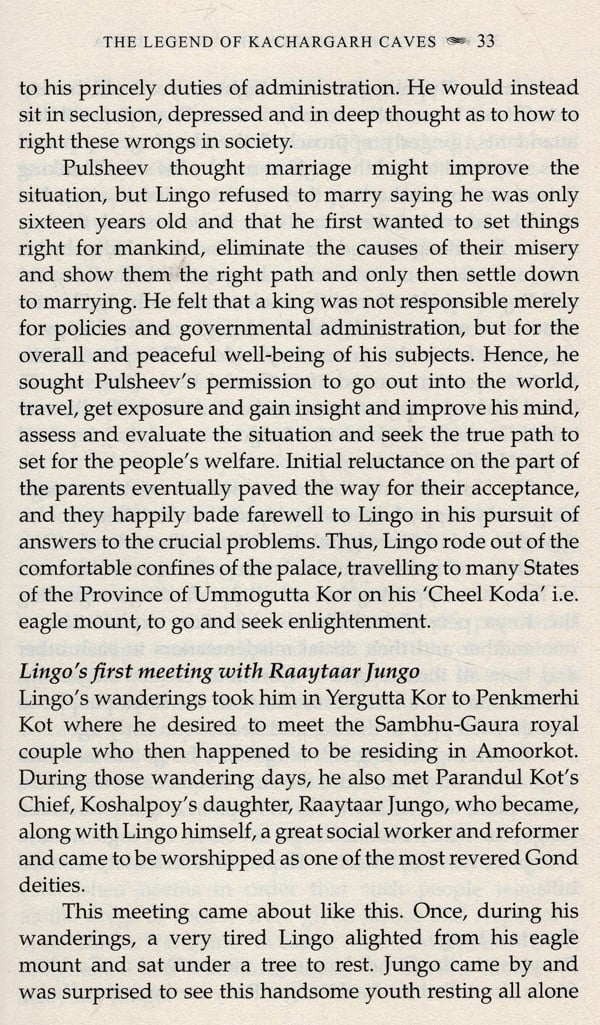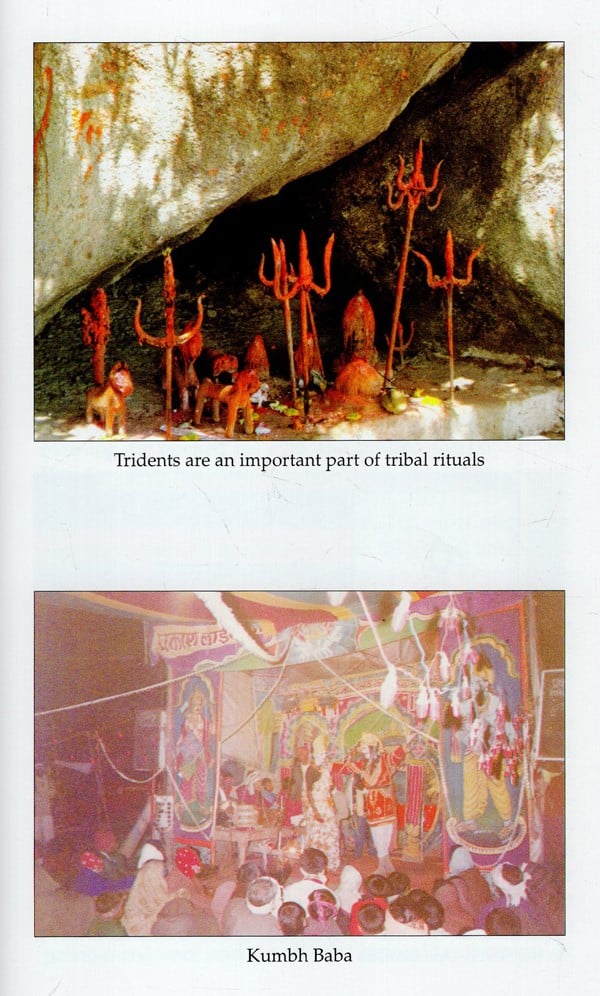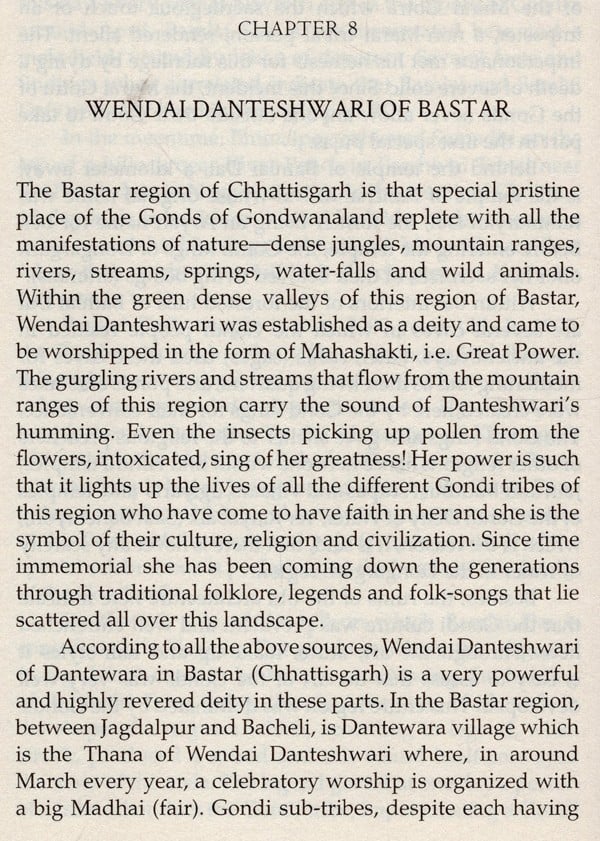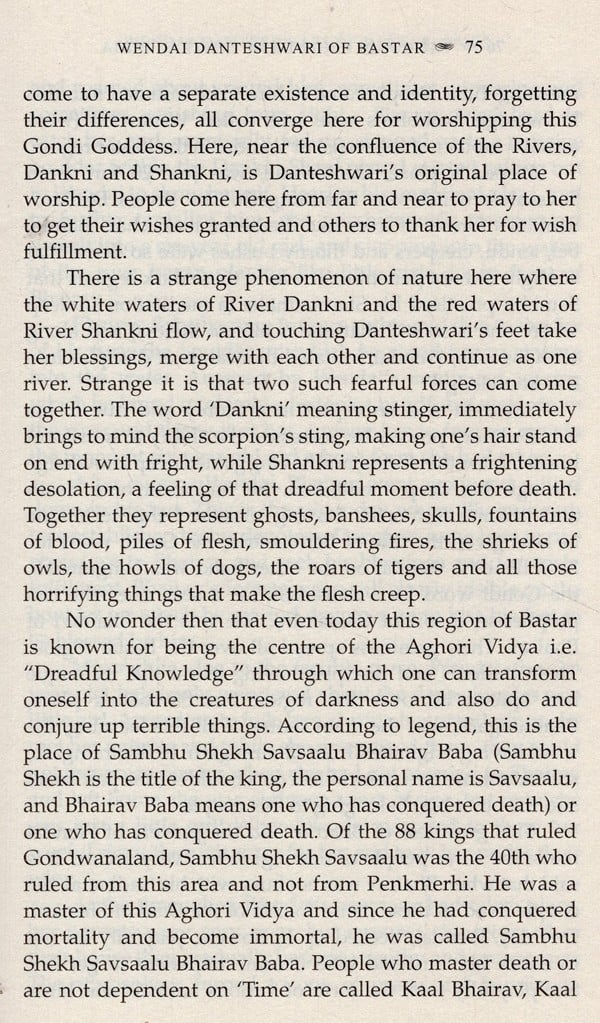
The Gondi Legends of Central India
Book Specification
| Item Code: | UAX218 |
| Author: | ANURADHA PAUL |
| Publisher: | National Book Trust, India |
| Language: | English |
| Edition: | 2019 |
| ISBN: | 9788123787299 |
| Pages: | 136 (Throughout Color Illustrations) |
| Cover: | PAPERBACK |
| Other Details | 8.50 X 5.50 inch |
| Weight | 160 gm |
Book Description
The Gonds is one of the largest groups of indigenous people in India. They largely inhabit the central hinterlands of India. Today most of the indigenous communities that exist in our country are descendants of the original Gonds of the Gondwanaland. The culture of the Gonds was propagated by their preceptor or Guru, Pahandi Pari Kuper Lingo. Much of their ancient history, culture and religion preserved in Gond folklore including myths, legends, songs, stories and rituals have come down from one generation to the other through oral tradition. By bringing together some of these stories and legends alive for a wider readership, the book casts light on unknown areas of our collective cultural history. The book would be of interest to sociologists, anthropologists, students of culture studies as well as the general reader.
Anuradha Paul, a senior freelance writer, is a post graduate in English literature and journalism. For over the last four decades she has been passionately travelling and writing variously on wildlife, nature conservation, indigenous peoples, and eco-tourism. As part of her research project awarded by the Ministry of Culture, Government of India, Anuradha Paul has extensively studied and researched the art and culture of the Gonds. Among her important publications include The Gonds: Genesis, History and Culture, published by National Book Trust, India.
The Gond tribes were the original and indigenous (adivasi) people of India and although in this fast-paced world. where fast-forward seems more relevant than rewinding in time, it is perhaps not only important but interesting to know about them and their origin and about the stories and legends connected with them. Today, while several tribes exist in our country, all of them are descendants of the original Gonds of Gondwanaland and their names are etymologically derived from the Gondi language, related to the names of birds, animals or trees. This is the one element that unites all the tribes. Even today, though the names of all important places, rivers and hills have been slightly modified by modern historians, they still retain something of their original names which are totally connected to Gondi origins and legends.
It is unfortunate that most of the genesis, history and culture have remained confined only to word-of-mouth knowledge and through the oral tradition of songs or Patangs, narrating their historical-stories, coming down from that such knowledge be recorded and documented as the generation to generation. Hence, it is important written word. Some of these exist in the form of books or booklets in Hindi, especially by writers like Dr. Motiravan (or Motiram) Kangali, but for them to be a wider section of readers in English, this book could fill the big gap. It is important to familiarise the people of this country through the written word with their origins and the interesting legends that are a part and parcel of our Indian culture, for several legends have been handed down from one generation to the next, but only orally.
A legend is a story carried from one generation to the other but considering this mode of dissemination, it is likely to suffer transmission losses in the course of communication, since most of the information is dependent on the oral tradition. Sometimes there will be beautiful embellishments and exaggerations by the bards who narrate them, sometimes the deletion of facts, sometimes the addition of facts or fiction and spicing-up and sometimes perhaps just plain conjecture where evidence is lacking. A legend may at times not necessarily carry much conviction for skeptics in terms of time and distance because over the centuries these tend to get lost or distorted. Nevertheless, these stories handed down through the medium of folklore, folk-songs and dance-songs, become etched in the minds of the people and are, in that sense, forever stories, always relevant, especially to believers, because stories are always fascinating. It becomes a matter more of faith and perhaps less of logic. Stories, after all, are enjoyed by all, the educated as well as the uneducated, young as well as the old and the urban people as well as their rustic counterparts. Religions are replete with legends which get firmly entrenched in the minds of believers, at times deep enough for rituals to be observed around them.
**Contents and Sample Pages**
